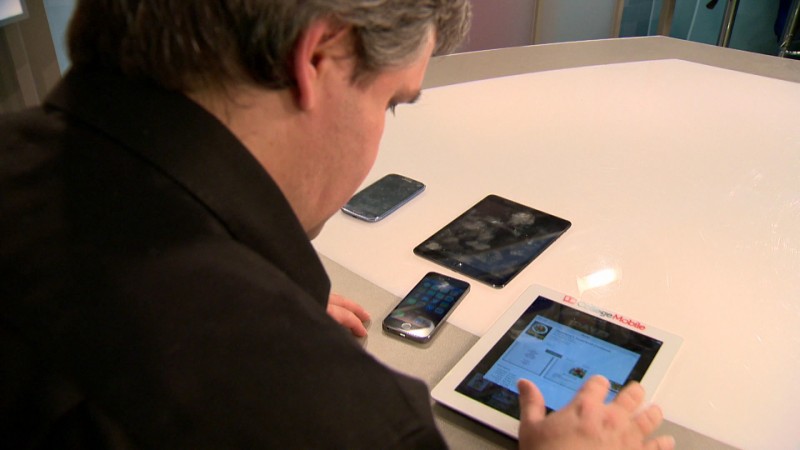REGINA – Not long ago, cell phones were primarily used for phone calls. But that’s no longer the case. Technology companies are constantly developing new smartphone applications and tools to make life a little easier or more fun.

Angry Birds, one of the most popular smartphone apps, simply started with a simple screenshot of an unhappy-looking bird. It’s now become a worldwide phenomenon.
“Angry Birds was the first app that took a lot of people with a lot of money, and said, ‘Wow this is a real market and you can make a lot of money,’” said Chad Jones, University of Saskatchewan professor.
Since its release in 2009, Angry Birds has been downloaded by more than half a billion people worldwide.
And the market for other applications is only growing. It’s estimated that more than 350 million apps were downloaded Christmas day alone.
“These devices are great bearers of information and are with us at all times,” said Jones. “They can replace a lot of the functions that we had before.”
Case in point — online banking. The Affinity Credit Union app has made trips to the bank a thing of the past. Now, simply taking a picture allows you to deposit a cheque directly from your phone.
But, there are downsides to that convenience. “When people lose their phone it’s like they’ve lost part of their identity- it’s more than just a device,” said Jones.
In order to protect all of that personal information, developers recommend setting a pass code and using a “phone finder” app that can locate and wipe all data if your phone is lost or stolen.
“Apps are a part of everyone’s daily routine,” said David Gerhard, University of Regina professor. “The way we do things on the computer are slowly moving onto phones and tablets.”
- Life in the forest: How Stanley Park’s longest resident survived a changing landscape
- ‘Love at first sight’: Snow leopard at Toronto Zoo pregnant for 1st time
- Carbon rebate labelling in bank deposits fuelling confusion, minister says
- Buzz kill? Gen Z less interested in coffee than older Canadians, survey shows




Comments